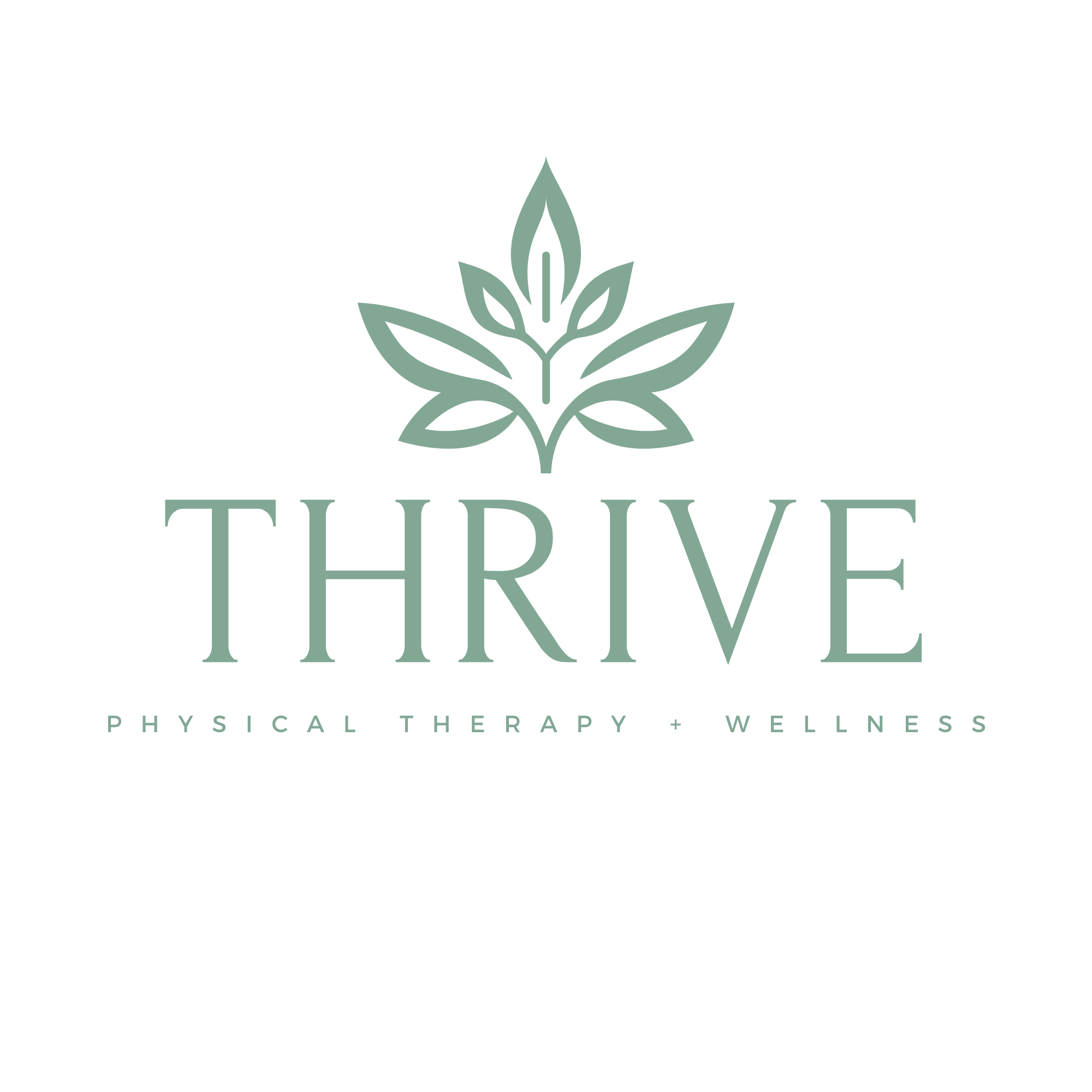
Imagine waking up one day and feeling like the world around you is spinning uncontrollably. Maybe you’re struggling to keep your balance, or perhaps simple tasks like walking or even standing become a daunting challenge. This unsettling experience often points to a problem within the vestibular system — the delicate inner ear and brain structures responsible for balance and spatial orientation. When things go wrong in this system, dizziness, vertigo, and imbalance can take center stage in your life, affecting everything from your independence to your overall wellbeing.
When faced with vestibular disorders, patients often wonder: Should I rely on medication to find relief, or is vestibular therapy a better path forward? At Thrive Physical Therapy, they emphasize that while medication has its place, vestibular therapy often leads to more lasting, empowering outcomes. Let’s unpack why that is, and what this means for anyone navigating vestibular challenges.
Understanding Vestibular Disorders
Before we compare treatments, it’s important to understand what vestibular disorders really entail. The vestibular system, located deep inside your inner ear, works like a finely tuned balance orchestra. It sends signals to your brain about head movement, position, and spatial orientation. When this system malfunctions—due to infections, injury, aging, or other causes—the result is dizziness, imbalance, nausea, and sometimes severe vertigo.
Vestibular disorders are surprisingly common. They can make everyday activities like driving, climbing stairs, or even reading feel difficult or unsafe. For many, the impact is not just physical but emotional, stirring feelings of anxiety and frustration.
Medication: The Quick Fix?
Medications often seem like the natural first step when dizziness strikes. Drugs such as antihistamines, benzodiazepines, or anti-nausea medications can dampen symptoms rapidly. They work by calming the nervous system or reducing inflammation in the inner ear, offering a soothing balm to the chaos of vertigo.
However, the story doesn’t end there. While medication can relieve symptoms in the short term, it doesn’t address the root cause of the vestibular dysfunction. In fact, long-term use of vestibular suppressants can sometimes hinder your body’s natural ability to compensate for balance issues. This is because the brain relies on input from the vestibular system to relearn balance and spatial orientation when things go wrong. When medications dull these signals, it may slow down that vital process.
Moreover, medications come with their own baggage—side effects like drowsiness, confusion, or dizziness that can ironically compound the original problem. Patients who rely solely on medication might find themselves stuck in a cycle of temporary relief followed by recurring symptoms.
Vestibular Therapy: Rehabilitating the Balance System
This is where vestibular therapy shines as a proactive, rehabilitative treatment. Unlike medication that masks symptoms, vestibular therapy works by retraining the brain and body to adapt and compensate for vestibular dysfunction. It’s a personalized approach involving a set of exercises and maneuvers designed to improve balance, reduce dizziness, and restore confidence in movement.
Therapists specializing in vestibular rehabilitation evaluate your unique balance challenges and create a program tailored just for you. The therapy often involves gaze stabilization exercises, balance training, and habituation movements that help desensitize your system to triggers that provoke dizziness.
One of the most fascinating aspects of vestibular therapy is the concept of neuroplasticity — the brain’s remarkable ability to reorganize itself. Through targeted exercises, the brain learns to use other sensory inputs like vision and proprioception (your sense of body position) to compensate for the impaired vestibular signals. This retraining fosters long-term recovery and resilience.
Why Vestibular Therapy Often Outperforms Medication
If you’re wondering which treatment is more effective, the evidence increasingly points to vestibular therapy as the superior option for sustainable improvement. Here’s why:
Vestibular therapy directly targets the underlying dysfunction rather than just suppressing symptoms. It equips patients with tools to manage their condition independently, fostering active participation in recovery rather than passive symptom control.
Many studies highlight that patients undergoing vestibular rehabilitation experience significant reductions in dizziness and improvements in balance compared to those treated with medication alone. The therapy also improves overall physical function, reduces fall risk, and enhances quality of life.
In contrast, medication typically serves as a bridge for symptom management during acute episodes, but it does not substitute for a long-term rehabilitation strategy. Additionally, prolonged medication use is not ideal due to potential side effects and dependency risks.
Combining Both for Optimal Care?
It’s important to note that medication and vestibular therapy aren’t always mutually exclusive. In some cases, medication plays a critical role during the initial stages of severe symptoms, providing necessary relief that allows patients to engage more comfortably in therapy. Think of medication as the calm before the active work begins with vestibular rehab.
The ideal treatment plan is often an integrated approach where medication controls acute symptoms temporarily, and vestibular therapy guides the recovery and retraining process. This combination, carefully managed by skilled clinicians, often yields the best outcomes.

Personalized Care: One Size Does Not Fit All
Just as no two people experience vestibular disorders the same way, treatment must be personalized. Thrive Physical Therapy understands this deeply. Their clinicians don’t just apply cookie-cutter programs. They take time to assess your specific condition, lifestyle, and goals to craft an individualized treatment plan.
They look beyond the symptoms and help patients reconnect with their lives — whether that means returning to work, enjoying hobbies, or simply feeling safe walking around the house. This patient-centered care makes all the difference in recovery and satisfaction.
The Empowerment Factor
Beyond the clinical benefits, vestibular therapy empowers patients in a profound way. Instead of relying on pills to dull symptoms, patients learn skills to understand their bodies and manage their conditions. This active role reduces anxiety and builds confidence, crucial components often overlooked in medical treatment.
Therapists at Thrive Physical Therapy support and motivate patients through this journey, providing education, encouragement, and adjustments as needed. This partnership creates a supportive environment that fosters hope and progress.
The Road to Recovery Is a Journey, Not a Sprint
Recovery from vestibular disorders can be challenging and requires patience. Vestibular therapy is not an instant cure; it demands commitment and consistent practice of exercises. But the rewards — reduced dizziness, improved balance, and a return to normal life — are worth the effort.
Medication might offer quick relief, but it rarely provides the full picture of healing. Therapy helps the brain heal and adapt, giving you tools to handle challenges long after the formal sessions end.
What Patients Should Keep in Mind
If you are dealing with dizziness or balance issues, it’s essential to get a proper diagnosis from healthcare professionals who specialize in vestibular disorders. Self-medicating or waiting out symptoms can prolong your discomfort and potentially worsen the condition.
Consulting a vestibular therapist early can change your recovery trajectory. These specialists use evidence-based techniques to assess your condition and guide you safely back to stability.
Suggested Reading: How Vestibular Disorder Therapy Helps You Regain Balance
Conclusion: Which Treatment Reigns Supreme?
If I had to sum it up in a simple way: vestibular therapy offers a comprehensive, sustainable, and empowering approach to managing vestibular disorders. Medication has its place — especially in managing acute symptoms — but on its own, it often falls short in delivering long-lasting results.
At Thrive Physical Therapy, the focus is on healing through rehabilitation, personalized care, and patient empowerment. Their team works with you to rebuild your balance, reduce dizziness, and reclaim your life. If vestibular challenges are affecting your daily routine, consider exploring vestibular therapy as your primary treatment, with medication as a supportive tool when necessary.
For those looking for expert guidance and compassionate care in their vestibular recovery, Thrive Physical Therapy is a trusted partner on this journey. Learn more about their services and how they can help you take control of your balance at https://thriveptclinic.com/. Your path to steadier steps and clearer days could start today.

